Natural Sustainable Acoustics


We are proud to be the first ever recipients of the Institute of Acoustics Sustainable Design Award
Sustainability of sheep wool acoustic products
As a small independent company producing acoustic panels and clouds we are absolutely delighted and honoured to have our work formally recognised by the Institute of Acoustics, winning their first ever Sustainable Design Award.
For details on the award please visit Sustainable Acoustics
The IOA introduced the Sustainable Design Award as they felt there was a need to recognise and celebrate contributions towards building a sustainable future. Barry Gibbs, IOA President, said: “We are proud to announce Woolly Shepherd as the first ever winner of our Sustainable Design Award. The Woolly Shepherd demonstrated exceptional work within this area while also demonstrating a continued focus on improvement in the form of external sustainability audits. Their company ethos makes them a deserving winner and a valuable contributor to sustainability in the field of acoustics.”
Our approach to sustainability is deeply embedded and personal. It underpins our business practices, is fundamental to the design of all our products and motivates our service. Sustainability is not a recent addition or bolt on component. Everything we do starts from the premise of responsible business practice, respect for the natural world and a desire to promote social inclusivity and well being in our built environment. Therefore, when we decided that we needed to relocate our business to accommodate its growth, we gave due consideration to the sustainability of this decision.
Sustainable Redevelopment
The reclamation and reuse of brownfield sites is a core component of the UK Sustainable Development Strategy integrating a wide range of economic, social and environmental objectives. Brownfield redevelopment not only cleans up environmental health hazards and eyesores, but it is also a catalyst for community regeneration, particularly when communities are brought into the consultation process of site identification and restoration. Managed effectively as a sustainable redevelopment scheme, brownfield sites provide affordable housing, create opportunities for employment, promote conservation and wildlife, and offer a shared place for play and enjoyment. Above all, the transformation of a brownfield site is a vision of hope for the future.
Our current premises, at Foxes Yard in Wellington, was part of the original Fox Brothers site. The oldest parts of the site date back to 1830 and has historic links with wool production. When we first enquired about the possibility of relocating to this site, the buildings were in a very poor state of repair and were being used for storage of tarpaulin covered building materials. In the photographs below, you can see how these beautiful old buildings have been restored.
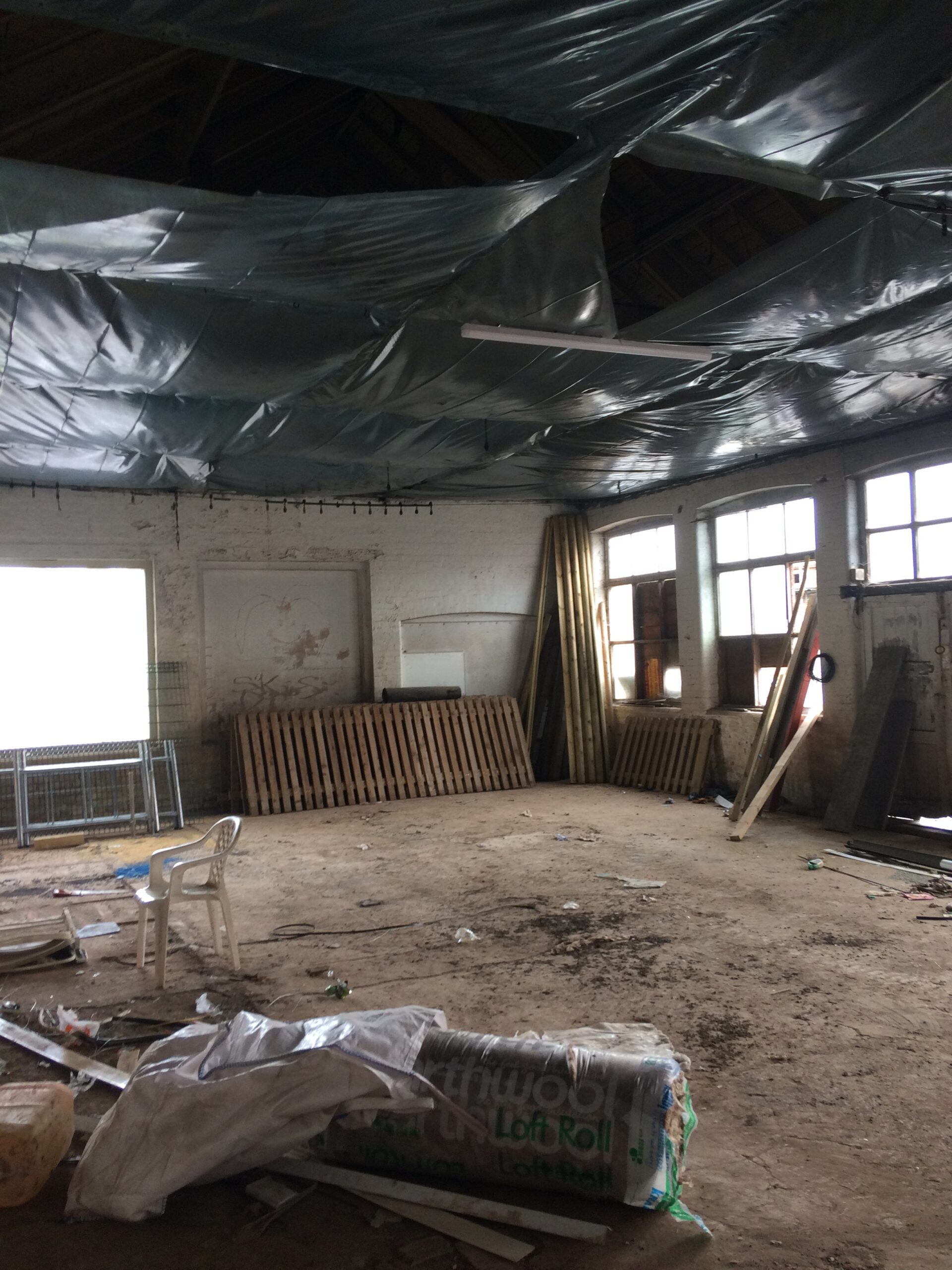
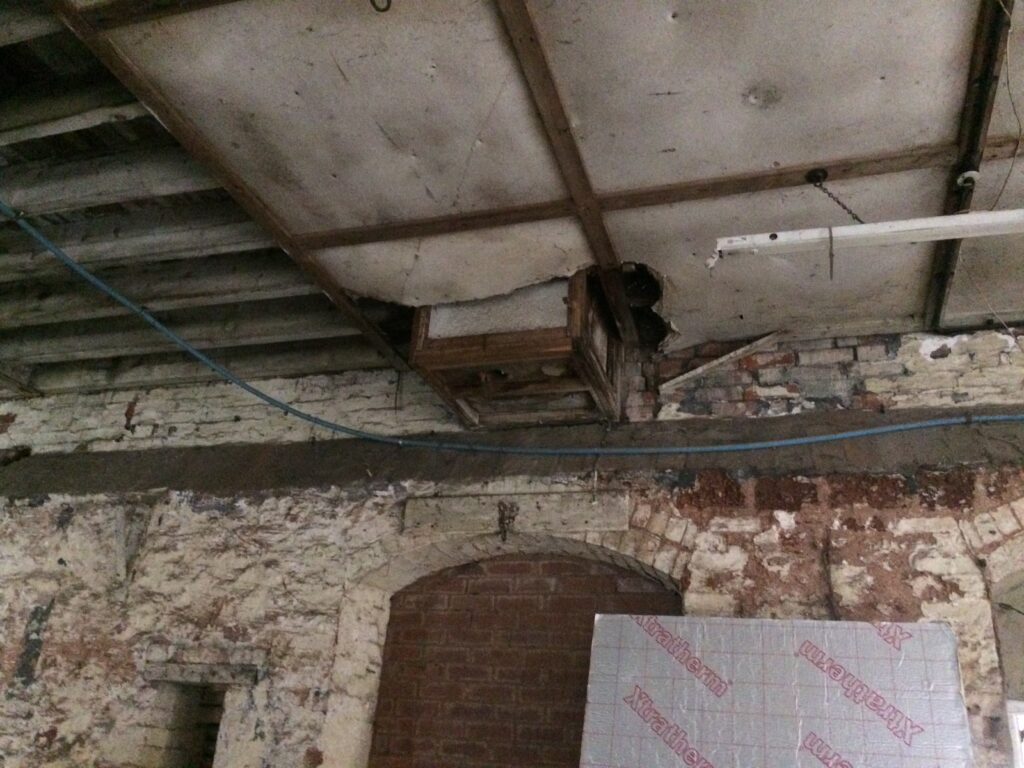
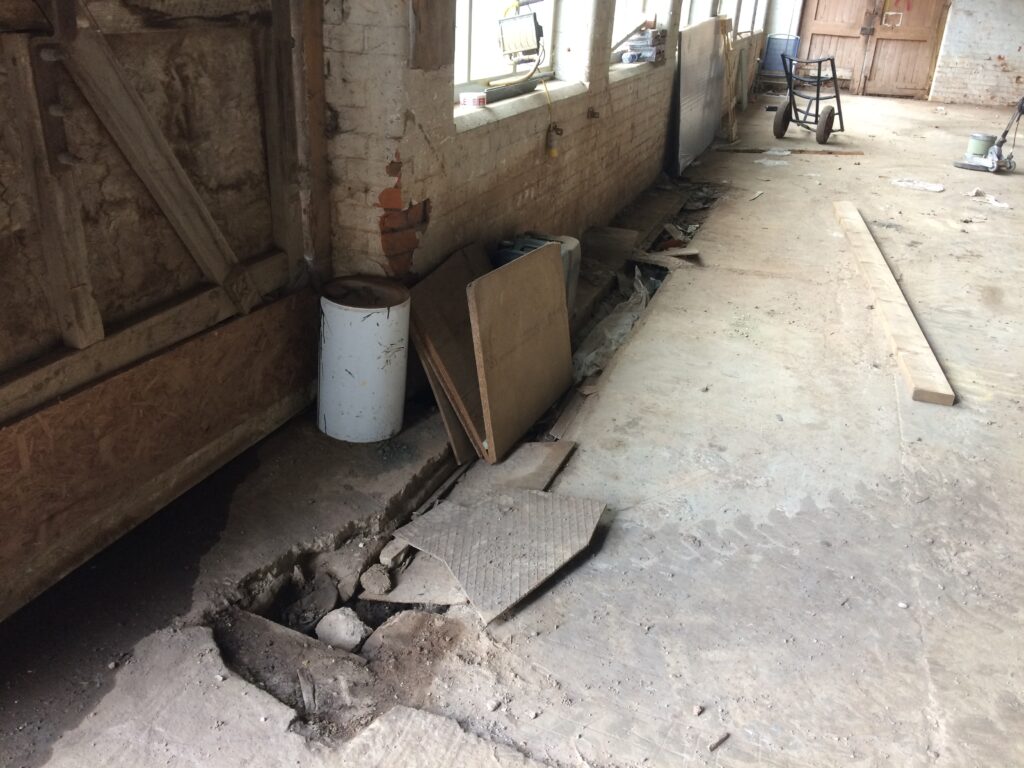
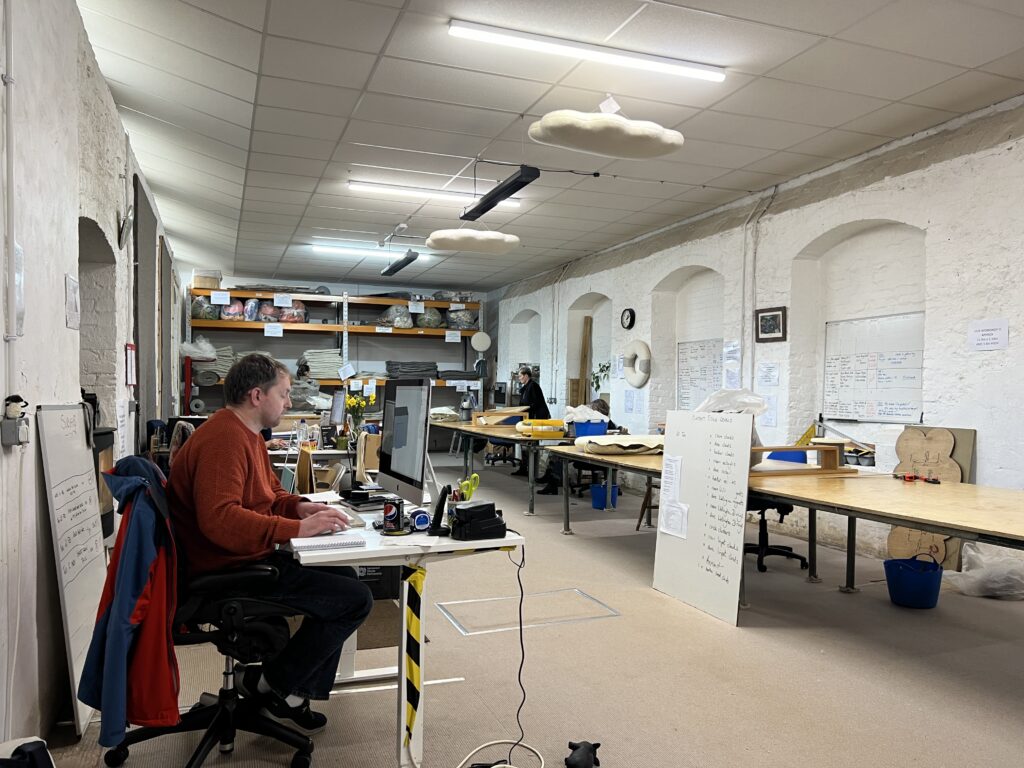
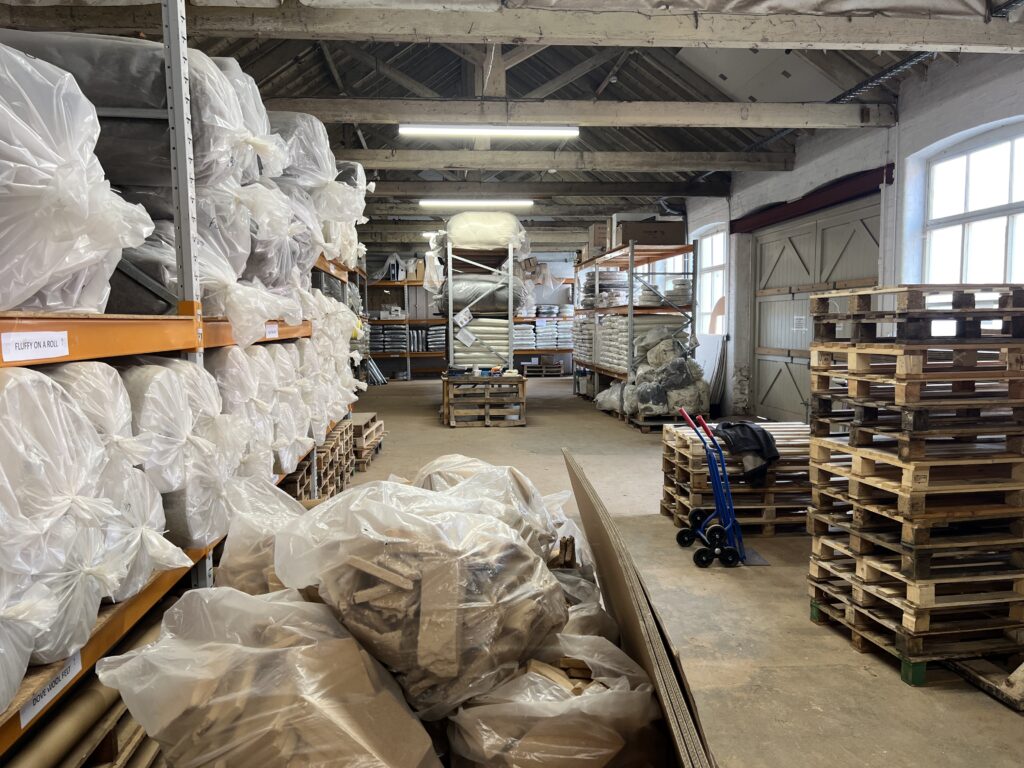
In a world filled with single use products derived from rapidly depleting natural resources and high energy manufacturing processes, the Woolly Shepherd is an industry leader, manufacturing lean, high performance acoustic treatment from wool and timber, renewable and recyclable resources requiring minimal energy inputs.
Sustainability need not be a compromise: all of our absorbers are tested in accordance with BS EN ISO 354:2003 and we take great pride in quoting performance data that is at least equal to the best of our competitors products made from mineral wool, plastics and foam. All of our standard limpet products are Class A absorbers.
The idea of using wool was informed by the desire to find a sustainable use for an otherwise unwanted, low value, product. Farmers were burning fleeces as they were unable to cover the cost of shearing. The remarkable acoustic absorptive properties of wool came to the rescue, offering an economically viable use for local raw materials.
Although wool prices are generally unstable, we continue to use wool and fleeces from small batches that would not otherwise be viable for farmers and smallholders. As the business has grown, we also source nationally, but we only use 100% UK grown wool and remain the only acoustic product designers to do so.
We believe it is vitally important to contribute to the rural economy and most of our wool is collected and paid for in Somerset and Devon. The wool is cleaned in Bradford and felted in Yorkshire and Somerset. This feeds back into our rural economy, providing fair trade for farmers and fair pay for local people at a time when the future of UK farming is uncertain and support for local producers is vital.
Measuring the Sustainability of our Products – Sustainability of sheep wool acoustic products
The Institute of Acoustics, Building Acoustics Group recently published its draft document Sustainable Building Acoustic Design – A Practical Framework.
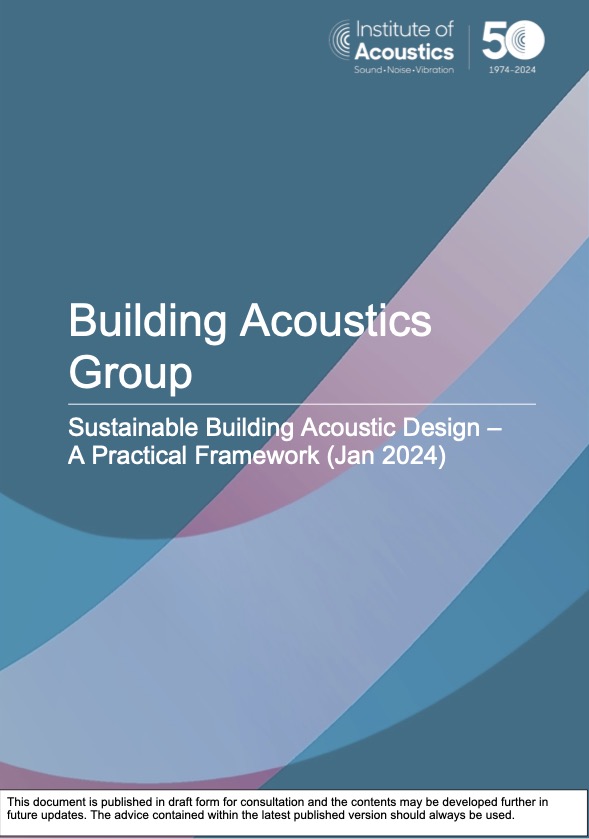
In this document, the group have laid out a proposal for the adoption of Environmental Product Declarations (EPDs) as a quantifyable demonstration of the environmental impact of acoustic products, in their manufacture.
However, like most tools of this kind, it makes assessments based on globally measured impacts of large industrial processes such as the production of mineral wools and plastics.
In cases where companies adopt the use of natural materials, such as sheep wool, sourced locally, from smallholders and farmers who had previously burnt or buried fleeces, Life Cycle Assessment data is not available, so the assessment has to rely on data produced for the impact of global sheep farming.
In recognition of circumstances such as this, where the entire focus of the company producing the products is to minimise its impact, the building group’s draft report includes the following text.
It should be noted that EPDs are not, without context, the final word on sustainable products or processes, and there may be aspects for which EPDs cannot be obtained but are nonetheless extremely sustainable choices – an obvious example being the use of recycled sheep wool as sound absorption or as insulation. An EPD calculation is not currently sophisticated enough to separate the breeding of sheep for meat (a very high carbon-generating activity) from the obtaining of the (essentially waste) wool for use in this way. Therefore whilst an EPD might suggest that this product has poor eco- credentials, even a cursory inspection of the detail reveals this not to be true.
An appreciation of the contents of an EPD is beneficial but not critical to the success of engaging with sustainable design, the simple act of asking for an EPD can set in motion many positive environmental outcomes.
For an alternative view on the impact of sheep farming in the UK, please use the link below.
Sheep farming wrongly blamed for climate change, says NSA
If you have any questions about the sustainability of sheep wool acoustic products, please give us a call on 01823400321 or email info@woollyshepherd.co.uk
Below is a short video showing our workspace and some of the stages of acoustic cloud making using natural wool and fibres.
